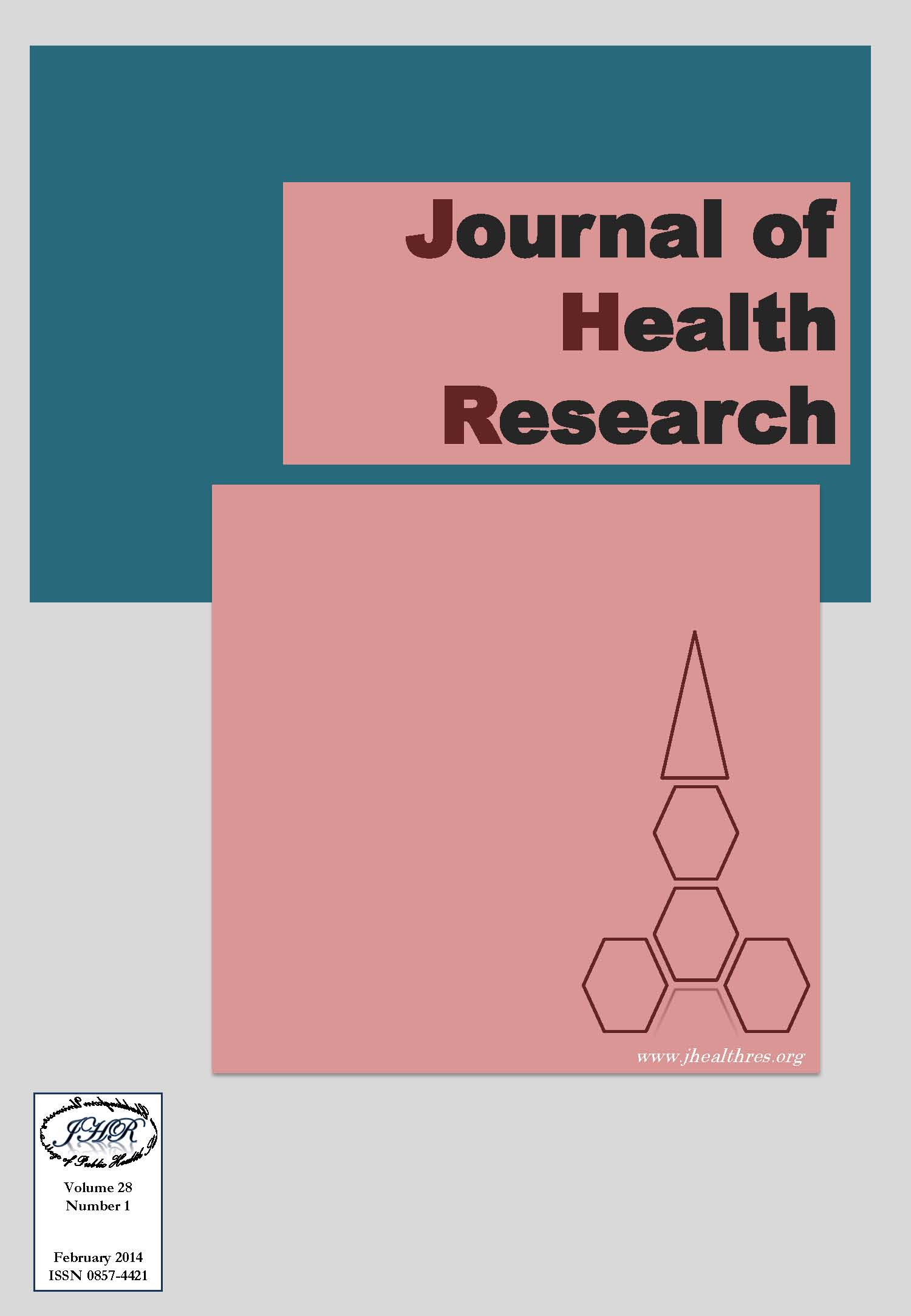Risk Factors for Severe Leptospirosis of Khon Kaen Province: a Case-Control Study
Keywords:
Leptospirosis, Severe manifestation, Case-control, Risk factor, Khon KaenAbstract
This unmatched case-control study aimed to identify risk factors for severe leptospirosis (compared to non-severe leptospirosis) among leptospirosis cases who lived in urban and rural settings in Khon Kaen Province, Thailand. The study population included all reported leptospirosis cases from passive surveillance system in Khon Kaen Province during January 1999 to December 2000. These years were selected because the province encountered important leptospirosis outbreaks which could arise initiation of setting up better leptospirosis surveillance system, improvement on clinical, and laboratory diagnosis. The results showed that among the 2,188 serologically confirmed cases, 658 (30.1%) were classified as severe. Those who resided in rural areas were protected against severe disease (OR = 0.67, 95% CI 0.47 – 0.96, p < 0.029). Those who started treatment late (> 2 days) and were farmers had 5.36 times higher odds than those who started treatment early (≤ 2 days) (95% CI: 3.10 – 9.27, p < 0.0001). Those who started treatment late (> 2 days) and were not farmers were at 2.53 times higher odds than those who started treatment early (≤ 2 days) (95% CI: 2.06 – 3.11, p < 0.0001). Those aged > 36 years were at 1.27 times odds higher than those aged ≤ 36 years (95% CI: 1.05 – 1.54, p < 0.015). These could be concluded that persons more frequently exposed to leptospirosis may develop some protection against severe forms of the infection. As per results, we are able to recommend to have emphasized on the importance of early diagnosis and prompt treatment in order to prevent the development of the severe manifestations, especially at areas that have same epidemiological and environmental contexts. Further studies on potential risk environmental factors in order to reduce the number of reservoirs and occurrences of the disease in both mild and severe forms should be carried on, especially study on specific serovars that maybe affected to severe manifestations of the disease.







